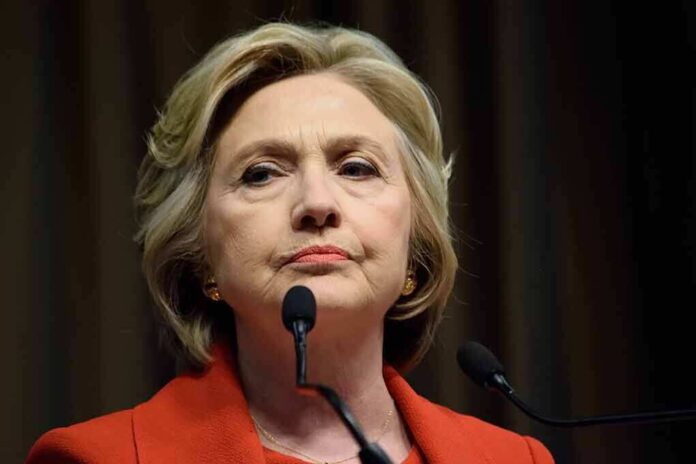
Hillary Clinton’s critique of Cyber Command operations against Russia opens a Pandora’s box of diplomatic history and political consistency.
Quick Takes
- Hillary Clinton criticized the halting of U.S. Cyber Command’s operations against Russia, directed by Pete Hegseth.
- Critics question Clinton’s past dealings with Russia, such as the Uranium One deal.
- The halt was reportedly a tactic to facilitate diplomatic negotiations with Russia.
- Military operation pauses during diplomacy are common, noted by The New York Times.
- Clinton’s 2009 photo with Russian Foreign Minister Lavrov points to her past diplomatic efforts.
Clinton’s Critique and Its Backlash
Hillary Clinton’s recent remarks criticizing Defense Secretary Pete Hegseth’s decision to pause U.S. Cyber Command’s offensive operations against Russia have reignited debates over her diplomatic record. Clinton suggested that Hegseth’s actions, allegedly deferential to Vladimir Putin, were ill-considered. This decision was part of the Trump administration’s broader strategy to negotiate an end to hostilities in Ukraine.
The controversy stems from accusations of Clinton’s perceived hypocrisy. Critics highlighted her diplomatic history with Russia, notably her role in the Uranium One deal and the diplomatic “reset” with Russian Foreign Minister Sergey Lavrov. These actions, alongside her recent comments, have sparked discussions on consistency in political stances and the complexities of U.S.-Russia relations.
The Pentagon has declined to comment on the specifics of cyber operations due to security concerns. “Due to operational security concerns, we do not comment nor discuss cyber intelligence, plans, or operations. There is no greater priority to Secretary Hegseth than the safety of the Warfighter in all operations, to include the cyber domain,” a Pentagon official stated. This underscores the sensitive nature of cyber warfare tactics and diplomatic negotiations.
Diplomacy’s Role in Military Discussions
Pausing military operations during diplomatic talks is routine, as reported by The New York Times. Such decisions aim to create a conducive environment for diplomatic progress. Secretary of State Marco Rubio stressed the importance of diplomacy in dealing with Russia, reinforcing the administration’s approach. “We have to bring [Russia] to the table. You’re not going to bring them to the table if you’re calling them names, if you’re being antagonistic. That’s just the president’s instincts from years and years and years of putting together deals,” Rubio mentioned.
The broader narrative of U.S.-Russia relations highlights the challenges of reconciling past diplomatic initiatives with present-day political discourse. Clinton’s past decisions, such as the Uranium One deal and the 2009 photo-op with Lavrov, serve as a reminder of the intertwined nature of diplomacy and policy actions.
Critics’ View on Consistency
Critics revisiting the Uranium One deal emphasize its perceived implications on national security and diplomatic relations. Under Clinton’s State Department, a Russian acquisition of a Canadian firm with U.S. uranium interests was approved. Additionally, her husband’s ties to the transaction, with Bill Clinton receiving $500,000 from a Kremlin-linked bank, further complicate the narrative. Key figures in the deal were also donors to the Clinton Foundation, fueling accusations of inconsistency in Clinton’s policy positions.
This critique on current political actions and past diplomatic initiatives illustrates the enduring influence of historical relations on modern political engagements. The enduring complexity of U.S.-Russia relations remains a focal point in political discussions, reflecting the challenges inherent in balancing national interest with geopolitical strategy.












